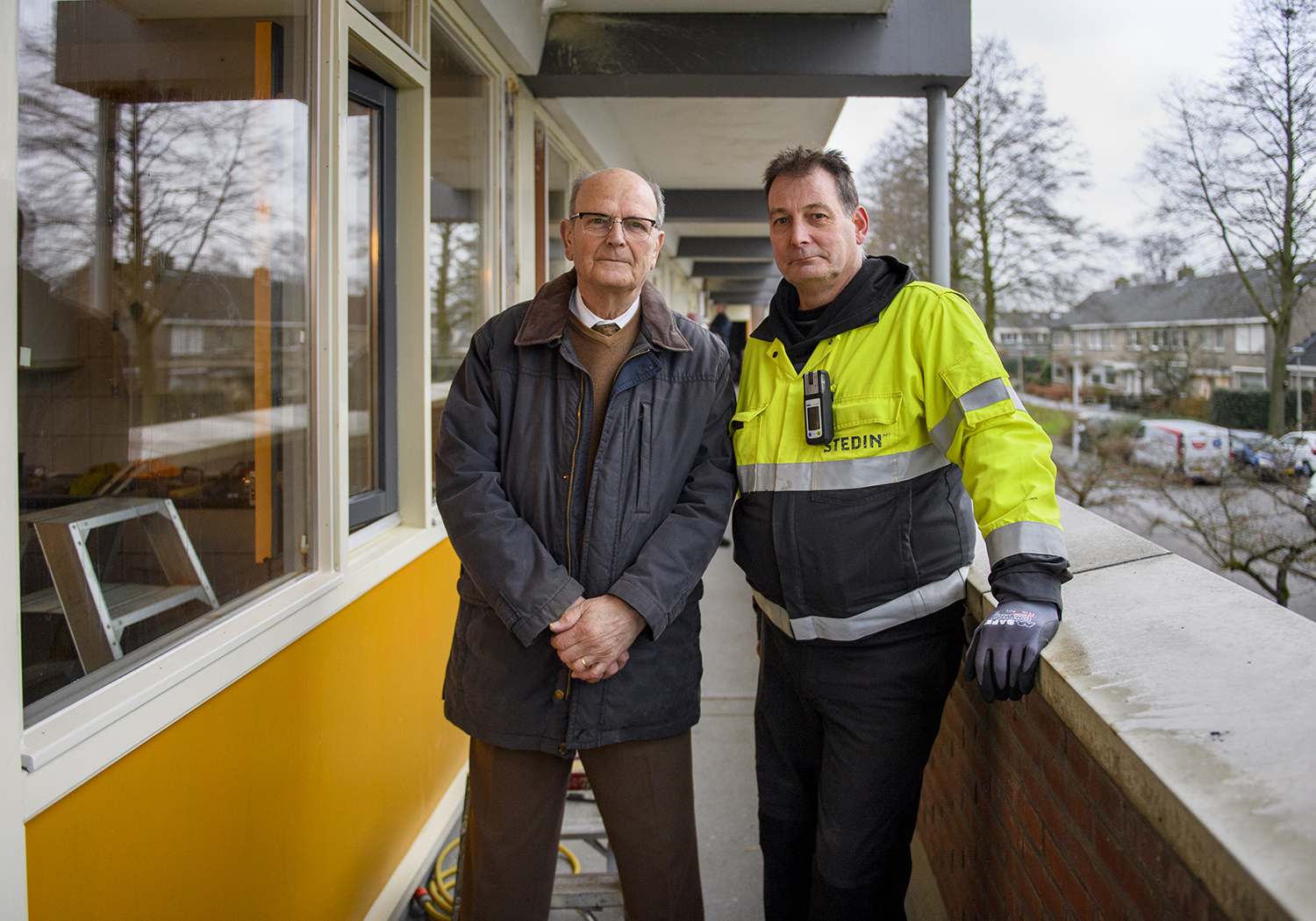Built Environment
Efforts to make the housing stock more sustainable are advancing well, but are they progressing quickly enough? In this section, we discuss four initiatives that help to speed up the improvement of sustainability in the built environment: alternatives for existing buildings, pilot areas for natural gas-free districts, cooperation with housing associations and natural gas-free new housing developments. This way, we help municipalities and housing associations to make choices.
Alternatives for existing buildings
All local authorities in the Netherlands must provide a transition vision for heat by the end of 2021. This vision shapes the direction of the district-oriented approach, in particular on alternatives for natural gas. Our 25 area directors and account managers are engaging with the first municipalities that have begun the development process for this purpose. Our advice to municipalities is contained in our Opening Bid.
When deciding how to heat districts, municipalities can opt for a heat grid, for a fully electric solution with heat pumps and perhaps also for sustainable gas in due course. Where municipalities have yet to make a choice, a hybrid interim solution is available to residents and housing associations. While a hybrid heat system is not entirely natural gas-free, it does reduce gas consumption by approximately 30-40%.
Ensuring the complex coordination of work for removing gas connections and increasing electricity grid capacity allows us to help customers better as well as more quickly.
Test beds for Natural Gas-free Districts
Stedin's service area includes 7 of the 27 test beds for natural gas-free districts. Each district is characterised by its own dynamics and planning phase. The Sliedrecht-Oost test bed represents our first ever investment in an existing natural gas-free district, in cooperation with the heating company, the municipality and the housing association. We expect a second tranche of test beds in 2020, for which we will use the lessons from the first tranche.
Dialogue with housing associations
The housing association sector is designated as a catalyst of the energy transition in the Climate Agreement. We have therefore seen an increase in requests from housing associations for the removal of gas connections. This increase has prompted us to expand our cooperation with
them. We organised two meetings in the spring to explain our approach and to discuss how we can coordinate our plans. In the autumn, we visited housing associations to start a dialogue on cooperation. We plan to organise sessions on cooperation with multiple housing associations in our service area during 2020.
Quantification of financial implications for districts
The aim of calculating the financial effects of the future energy system in districts and of the housing association stock is to find out which scenarios are most effective in facilitating the energy transition. We manually quantified the financial implications for the first districts, which allowed us to determine a method for speeding up the process. In 2019, we quantified the financial implications for a total of 2,500 districts.
Transition together/Innovation
Opening Bid – alternatives for natural gas
The Opening Bid contains advice for municipalities on the socially desirable alternative to natural gas in each of the more than 3,000 districts in the service area of Stedin and Enduris. This Opening Bid focuses on existing buildings and draws from the three main Dutch models for the energy transition which currently exist: Vesta by PBL Netherlands Environmental Assessment Agency, CEGOIA by CE Delft and ETM by Quintel Intelligence. By intelligently combining the outcomes of these three models, additional information comes to light which would not be obtained from a single model alone; for instance, how robust the choice of a particular alternative to natural gas is. An initial, provisional version of the Opening Bid was prepared in March 2019. Its aim was two-fold: to assess whether it works and whether it would be taken up. Buoyed by the positive responses, we delivered Opening Bid 1.0 at the end of 2019, which Stedin will release in February 2020.
Natural gas-free new housing developments
No planning permission for new housing developments with natural gas has been granted since July 2018. However, new-build projects for which planning permission was requested before July 2018 may still be constructed with natural gas. Together with the municipalities, Stedin has undertaken to convince developers of building natural gas-free nonetheless. It did so in 2018 by entering into covenants with most municipalities in our service area and in 2019 by intensifying cooperation with the municipality of The Hague. Along with other factors, this approach resulted in four out of five applications for planning permission for new housing developments being natural gas-free in 2019. In the fourth quarter, the percentage of applications for new housing developments hovered around 90%. Stedin expects the number of gas-free new-build homes that will be built in 2020 rapidly to approach 100%.
Applications for natural gas-free new-build projects (in per cent)
Heat grids
Stedin Group seeks to accelerate the energy transition by actively exploring how to improve the sustainability of the heat supply in the built environment within its service area. In addition to electrification, collective sustainable heating is an alternative to make the built environment natural gas-free. NetVerder B.V. (which operates in the 'non-regulated' segment) therefore continued developing a portfolio of projects focused on collective heat systems in the past year driven by the public interest. You can read more about this topic in Non-regulated activities.
Transition together in practice
Strategic environmental management is inseparably linked to the energy transition. We want to exchange information with other organisations and stakeholders at the earliest possible stage in order to ensure effective coordination of plans. We do so in several ways; for example, by making data on our grids publicly accessible and by concluding covenants as well as agreements for long-term cooperation with municipalities and other parties. In addition, Green Deals were signed in 23 municipalities on gas-free housing, so as to make at least one neighbourhood natural gas-free in each municipality.
The role of the grid manager and the legal obligation to cooperate with local parties on work for new stations, for instance, present an interest challenge. Additionally, it is important for us to be able to contribute to the environmental planning visions drawn up by local authorities. Cooperation between the various parties will become even more important in this area.
Transition together
100% Hydrogen heating in Rozenburg
An apartment complex in the Rotterdam district of Rozenburg has been heated by 100% hydrogen central heating boilers since June 2019. A third boiler was added at the last moment to join the boilers provided by Bekaert Heating and Remeha, which were announced back in 2018. This third boiler was developed on behalf of GasTerra. We are responsible for implementing the project together with our partners DNV GL, the municipality of Rotterdam and the housing foundation Ressort Wonen.
The demonstration project is unique both nationally and internationally, particularly since the locally produced green hydrogen is transported through an existing, unmodified natural gas pipeline owned by Stedin. As a result, it is no surprise that the project has attracted considerable interest at home and abroad. In Rozenburg, Stedin is demonstrating that one of the pieces of the puzzle that makes up the energy transition – hydrogen – is closer than many people think. Its technical feasibility has already been established and this project showcases hydrogen as an alternative that deserves to be taken into consideration in analyses. Furthermore, the project in Rozenburg is a prelude to a larger project: we will heat 550 existing homes in Stad aan Haringvliet entirely by hydrogen from 2025. We will do so using Stedin's existing local gas grid.

Four residential complexes in Hendrik-Ido-Ambacht (at IJdenhove and Van Assendelftgaarde) are undergoing large-scale, sustainable renovation. All of the 197 homes are being made fully electric. Together with his Stedin colleagues, fitter Joop Korf is responsible for disconnecting these homes from natural gas. Mr Goedgebuur is one of the residents of the complex.
